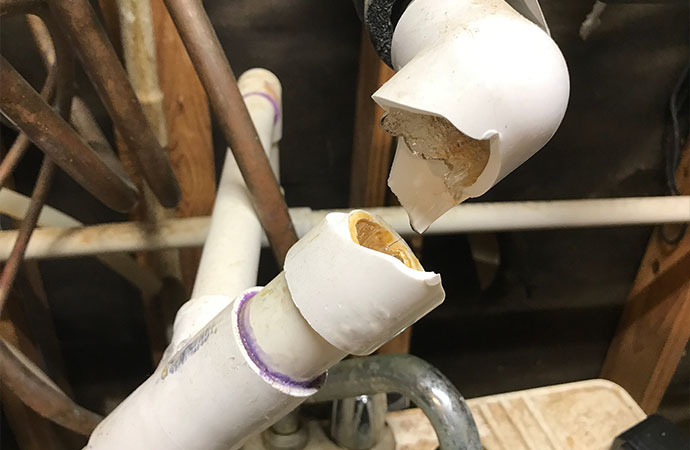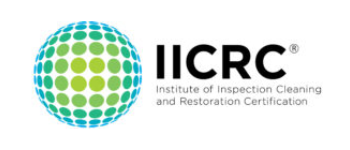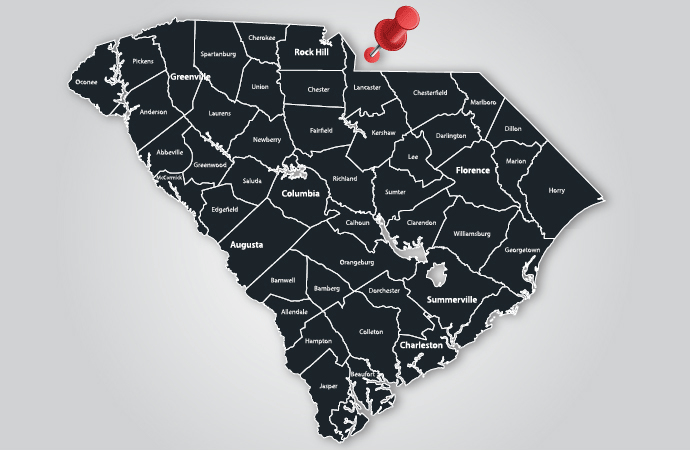9 Tips to Avoid Frozen Pipes
You may often hear the sounds of snap, crackle, and pop from a fireplace or your breakfast cereal, but you never want to hear those noises from the water pipes in your South Carolina home or business. They could be a sign of a breaking pipe, and once one ruptures, it may release hundreds of gallons per hour, triggering widespread water damage to your property. Sadly, we at Kingsley Water Damage Restoration witness these incidents each winter when pipes are allowed to freeze. But why do they break?
The Why Behind Frozen Water Pipes

Water responds in a different manner from most other elements. When water is cooled, it contracts till the temperature lowers to approximately 40°F. At that point, it expands a little until it drops to the freezing point when it then dramatically swells by about 9%. pushing water toward a closed faucet. This produces a massive amount of water pressure between the ice blockage and the faucet. Since that’s enough pressure to crack apart boulders, your plumbing doesn’t stand a chance!
Identify Problem Areas
The pipes most likely to freeze are:
- Those unprotected from severe cold, such as outdoor hose faucets, swimming pool supply pipes, and water sprinkler lines.
- Plumbing in unheated inner areas like crawl spaces, basements, garages, attics, and kitchen cabinets, particularly those that haven’t been insulated.
- Pipes that run beside outer walls and possess little to no insulation.
Tips to Avoid Frozen Plumbing
Before cold weather commences, follow the following suggestions to keep your plumbing from freezing:
- Drain all the water from your swimming pool and water sprinkler supply pipes.
- Close the inside faucets that supply open-air spigots, then open those outside spigots to allow any remaining water to drain away. Allow the outside valves to remain open so that any water left in the lines can expand without breaking them.
- Add high R-value insulation to basements, attics, and crawl spaces.
- Connect “pipe sleeves” or wrap UL-listed “heat tape,” “heat cable,” or like materials to unprotected water lines.
- Keep your garage door closed if there are any water supply lines inside.
- Open up kitchen and bathroom cabinets to allow warm air to circulate around the plumbing.
- Once the temperature falls to 28°F outside, drip water from both the cold and hot water faucets. This allows water to keep moving through the pipes and reduces built-up water pressure if they freeze.
- Keep your thermostat set at the same temperature night and day. A marginally higher electric bill costs much less than a plumbing repair job and water damage cleanup.
- If you’re a snowbird and will be away for the winter, set the heat in your home to no lower than 55°F.
Many times, a pipe will freeze and burst in the middle of the night when it’s coldest. Sadly, that’s also the time when most people are asleep and so may not realize what’s happened until hours later, intensifying the amount of water damage and the cost to repair it. So do everything you can to ensure that it doesn’t happen to your South Carolina home or business.
But if it does, call Kingsley Water Damage Restoration any time of the day or night at 803-590-0370. We’re fully insured and have the professional equipment and extensive experience to handle all types of water damage cleanup.





